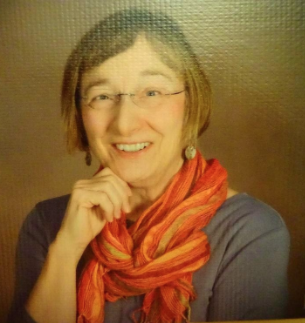Poetry by Mary Jo Robinson-Jamison

Federal law defines settings or levels from one to six. “Setting one” is a placement primarily in the regular education classroom, while “setting three” is primarily in a special-education classroom. “Settings four, five and six” are placements in a separate school or program... Sometimes a child’s disability and needs are best served in a placement outside of the regular-education classroom.
—Cynthia Fashaw, NAMI Minnesota
i. Floating
Some of my students walk with specters I cannot see. Bara is from a place two oceans away. A tall muscular teen, too large for these desks, who has never been to school. Bara bites her hand, cries out suddenly during class, lunges, wild-eyed, to pull and twist the long hair of a colleague. Her voice rises, swoops. Wrings itself out like a rag. We do not know if she is saying words. When the flurry is over, we are wooden. For a split second, there is nothing else in the world.
On a good day, I disappear.
Forget myself completely.
Enter the room as if the moment is made of water.
For this
is a class in swimming.
With only the gravity of intention, my fingers press the keys of our piano. Some chords applied with gentleness can smooth a forehead just like the hand of a loved one. Even on this piano that is a relative of every other out-of-tune public-school piano. Even if a hand feels too cool at first, the imperfection brings along its own warmth and marks the moment.
Odd events garner attention. Suspend a xylophone bar on fishing line, or a monkey wrench or a section of tailpipe found beside the road and strike it. Strike it in a room that knows more loss than you can fathom and feel the pull of ringing. It is just there. An unexpectedly beautiful ringing. Of no consequence. Listen. The room will be like fingernails at rest.
For a while, the necks of herons unfurl.
Blackbirds return to their home territories.
We feel ourselves rocked by the water beneath us.
For a moment, we float together, like lily pads.

ii. Rising
Some of my students have fragile bodies. They have been wheeled into the room. Chest straps and shoulder straps hold them in their chairs. Some of their legs are called windswept.
As if they were trees. Metal rods support the stalks of vertebrae in the room the way we tie bamboo to tomato plants. Heads in danger of leaving their stems droop in a half-circle around me. To a stranger, their voices sound like infants crying.
Lips open and through them comes song
from the skeletons of stranded vessels
carried on the wind. Vowels billow
and hang in the air like curtains.
Jose, Fatima, Karen, Reva, Bhlia, Phillip, Nick, and Tracy. Most have that smooth sweep and curve of birdlike bones, in shoulders, forearms, pelvis, that presses up from under unused skin to reveal the absent flesh. When I trip on a cord, Jose laughs like any other teen.
At home I sifted through recordings for what will not be ignored. Today I begin the class with Tuvan throat singing to carry us onto a thundering horse’s neck in Mongolia. Nick’s head comes up momentarily. Swings from right to left as he loses control; then drops and bounces on his chest. Even that rising is a small victory. His body is still listening.
After the students have tried to answer my questions with eye-pointing and switches, and the semblance of words; after my hanging cymbals are put away, the mallets with straps, the tilted table, the keyboard; after Corey has fallen asleep from a regimen of seizure meds, long bus rides, or a lack of hope. After all this I end the class with one long slow note of Mozart on a recording. Breath that moved through the reed of a clarinet years ago unrolls itself across the room.
Sound like flesh warms the back of our necks,
fills that space between vertebrae and skull,
and lifts us toward dusty acoustical ceiling tile.
In the belief that there is sky.
Publishing Information
- “Placement Critical in Special Education” by Cynthia Fashaw, Minnesota Spokesman Recorder, April 11, 2012.
Art Information
- “Broken Piano Keys” © Matthew T Rader; Creative Commons license.
- “Clarinet” © Ted Rabbitts; Creative Commons license.
 Mary Jo Robinson-Jamison lives in St. Paul with her husband Kent with whom she raised two children. She grew up working in her dad’s Red Owl grocery store in Stearns County, Minnesota. For the last forty years she worked with the severely multiply handicapped as a music therapist. Her work has been published in Talking Writing, Driftwood Press, as well as the Green Mountains Review, North Coast Review, and the chapbook anthology Cracked Walnut.
Mary Jo Robinson-Jamison lives in St. Paul with her husband Kent with whom she raised two children. She grew up working in her dad’s Red Owl grocery store in Stearns County, Minnesota. For the last forty years she worked with the severely multiply handicapped as a music therapist. Her work has been published in Talking Writing, Driftwood Press, as well as the Green Mountains Review, North Coast Review, and the chapbook anthology Cracked Walnut.
